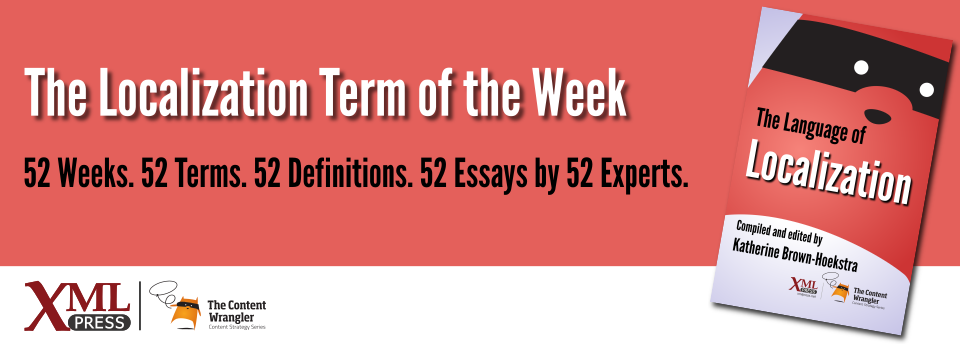What is it?
The ability to speak only one language, including non-verbal languages such as sign languages.
Why is it important?
Language acts as a filter between an individual and the world around them. A monolingual person has only one filter and, therefore, only one perspective for interpreting the world. This has implications for marketing and user experience.
Why does a technical communicator need to know this?
Localization is rooted in accommodating the essential role language plays in everyday life. To meet the linguistic and cultural needs of a population, people involved in localization must understand that the perspective of a monolingual individual or community is different from that of a multilingual individual or community. This different perspective can affect how marketing messages are interpreted, as well as the overall user experience.
A monolingual community often differs in how in-group and out-group status is established. These communities might define their in-group based on assimilation with the dominant language of the monolingual population, or divide communities by language if multiple monolingual groups exist.
A current example of this can be seen in the UK, where monolingual refugees struggle to find their place in dominant English-speaking communities. If the language of a monolingual community or individual is not that of the dominant society, then the immigrant community could be ostracized or pressured to assimilate. In this situation, these communities might require different marketing messages or information than the dominant culture that surrounds them[Erard 2012].
The perspectives of monolingual speakers are varied, but can be accommodated by localization specialists if handled carefully[Ellis 2006].
References
- [Erard 2012] Monolingualism in America: Erard, Michael (2012). A non-academic discussion of how monolingualism is measured. New York Times.
- [Serratrice 2012] Misconceptions About Multilingualism: Serratrice, Ludovica, PhD. LuCiD Bilingualism Policy Briefing article describes common myths and misconceptions about multilingualism, based on her research with UK children at the ESRC International Centre for Language and Communicative Development. PDF format.
- [Ellis 2006] Monolingualism: The unmarked case: Ellis, Dr. Elizabeth, PhD. Estudios de Sociolingüística 7(2) 2006. Academic article on the different theories of monolingualism in linguistics literature. Ellis also explains how the stereotype that monolingualism is the norm is perpetuated by monolingual speakers of a dominant language, such as English. University of New England. PDF format. Article currently blocked from some IP addresses.

